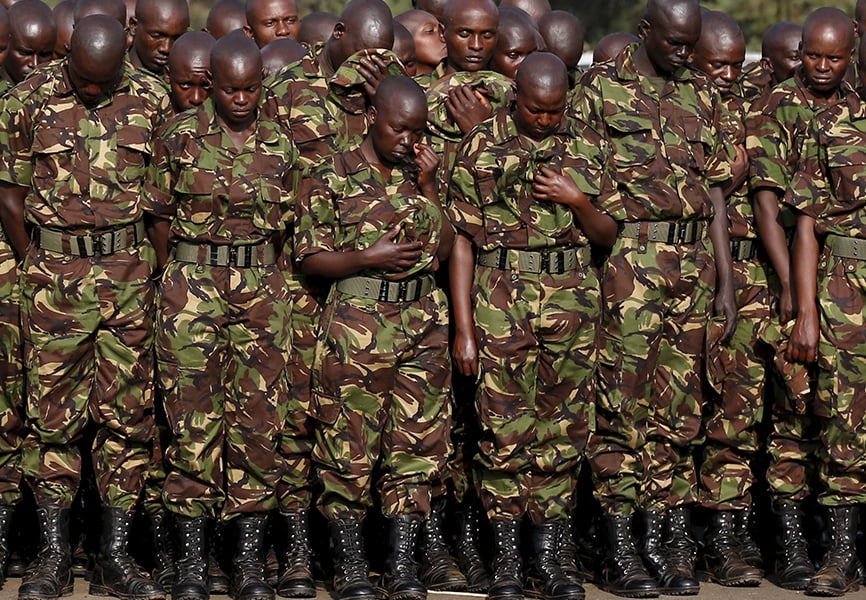THE “AFRICA RISING” NARRATIVE REMAINS APPEALING, but this year will face a new challenge. The continent's core countries (Cote d'Ivoire, Nigeria, Kenya, and Ethiopia, among others) have recently demonstrated robust investment climates, and they've been generally sealed off from the troubles of the “periphery” (Mali, South Sudan, Somalia, etc.). But in 2018, negative spillover from Africa's unstable periphery will increasingly spoil the continent's success stories.
The threat lies in security risks: militancy and terrorism. The dangers posed by Al Shabaab in East Africa and Al Qaeda in West Africa are not new, but they're set to intensify. Despite losing territory in 2017, Al Shabaab is still carrying out successful one-off surprise attacks and will look to more international targets in 2018. The Islamic State is likely to increase activity in West Africa and expand into East Africa as it is pushed from traditional strongholds in the Middle East.
Countries targeted by militancy and terrorism are more vulnerable than they've been in years, and external partners are less able to provide unified support.
Target countries are more vulnerable than they've been in years, and external partners are less able to mount a united front of support. Local actors in “core” countries are already suffering from weakened political capacity. Kenya's government will focus on economic recovery after a prolonged election cycle. Nigeria enters an election season with uncertainty over its current leader's health. South Africa faces internal political strife. Angola is busy with a fresh leadership transition. Mozambique is still struggling with a years-long debt scandal.
Foreign partners who have helped stabilize weak governments in the past are distracted. In the east, a preoccupied Europe has reduced its salary support for troops of the UN-mandated African Union Mission to Somalia operating in the Al Shabaab hotspot. Across the Sahel, the G5 counterterrorism partnership of Chad, Niger, Burkina Faso, Mali, and Mauritania plans to launch a 5,000-strong force in March 2018. But differences among France, the US, and UN officials will slow the necessary funding, leaving the region at risk, despite an injection of financial support from Saudi Arabia and the UAE.
The growing fragility of Africa's top performers has several implications. Kenya, Nigeria, Uganda, and Ethiopia face increased security costs at a time when their governments need to reduce spending. A spike in attacks would also undermine foreign investment perceptions already shaken by the election-related violence in Kenya, a growing social protest movement in Ethiopia, and presidential succession uncertainties in Nigeria and Uganda.
Foreign investors may see their assets directly targeted. Tourist and energy installations will be especially at risk. This will put downward pressure on FDI into the continent, leaving development reliant on limited local capital. And the pressure of security-related refugee flows—on countries in the region and in Europe—will not abate, creating a headache for policymakers on both sides of the Mediterranean.

